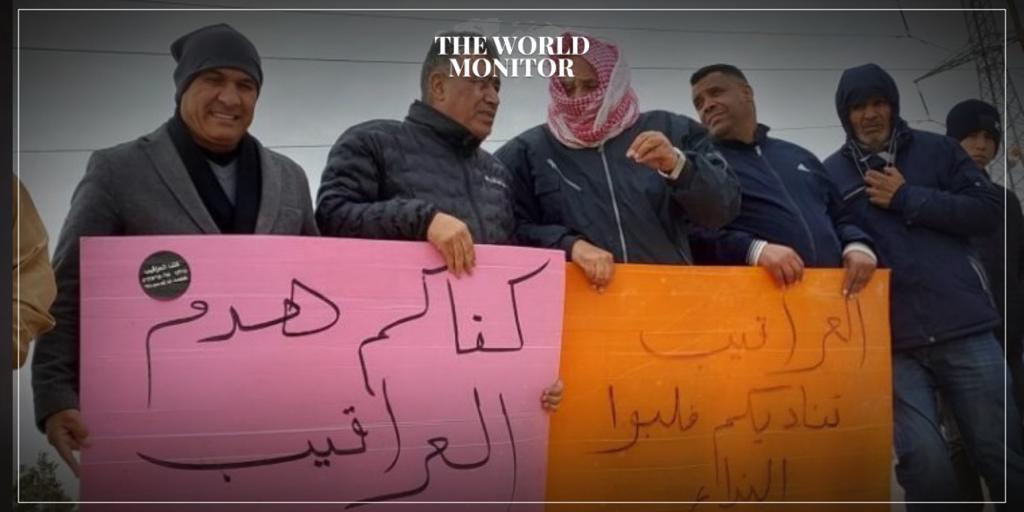Israeli occupation authorities demolished homes and tents in the unrecognized and threatened Al-Araqeeb village in the Negev region of the occupied 1948 territories for the 221st consecutive time on Monday, despite the hot weather conditions.
Occupation bulldozers and vehicles demolished homes built of wood, plastic, and tin, marking the first demolition of the village on July 27, 2010.
This marks the tenth time that the occupation has demolished the homes of Al-Araqeeb residents since the beginning of this year, following 15 demolitions last year and 14 demolitions in 2021.
Israeli authorities refuse to recognize the land ownership of Al-Araqeeb residents and subject them to racist practices, including land and crop confiscations, preventing them from grazing their livestock, and imposing heavy fines and arrests.
Al-Araqeeb is a Bedouin village located in the Negev desert in southern Israel. It has been subjected to a long-standing and contentious legal battle with the Israeli government over land ownership. The Israeli authorities consider the village’s structures and homes to be illegal and have repeatedly demolished them, displacing the residents.
The residents of Al-Araqeeb argue that they have lived on this land for generations, long before the establishment of the State of Israel, and have deeds and documents proving their ownership. However, the Israeli government disputes these claims and continues to demolish the village, making way for various development projects.
The ongoing demolitions and land disputes in Al-Araqeeb have been widely criticized by human rights organizations, which argue that the Bedouin population in the Negev is marginalized and discriminated against by Israeli authorities. The demolitions have also raised concerns about the forced displacement of Bedouin communities and the violation of their property rights.
Despite international condemnation, the demolitions in Al-Araqeeb persist, and the residents continue to rebuild their homes, only to see them demolished once again by Israeli authorities. This cycle of demolition and reconstruction has become a symbol of the broader issue of land and property rights for the Bedouin population in the Negev.






